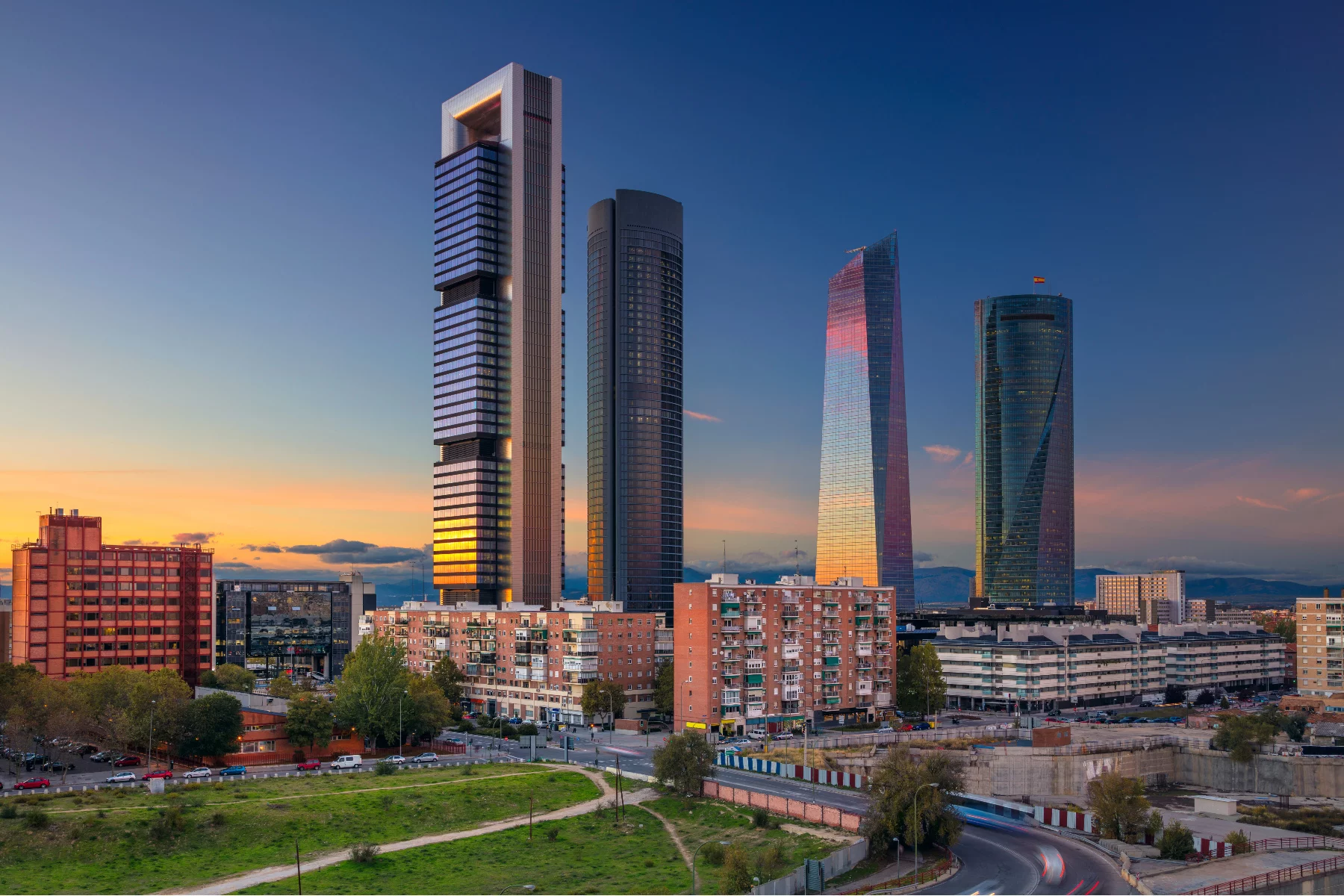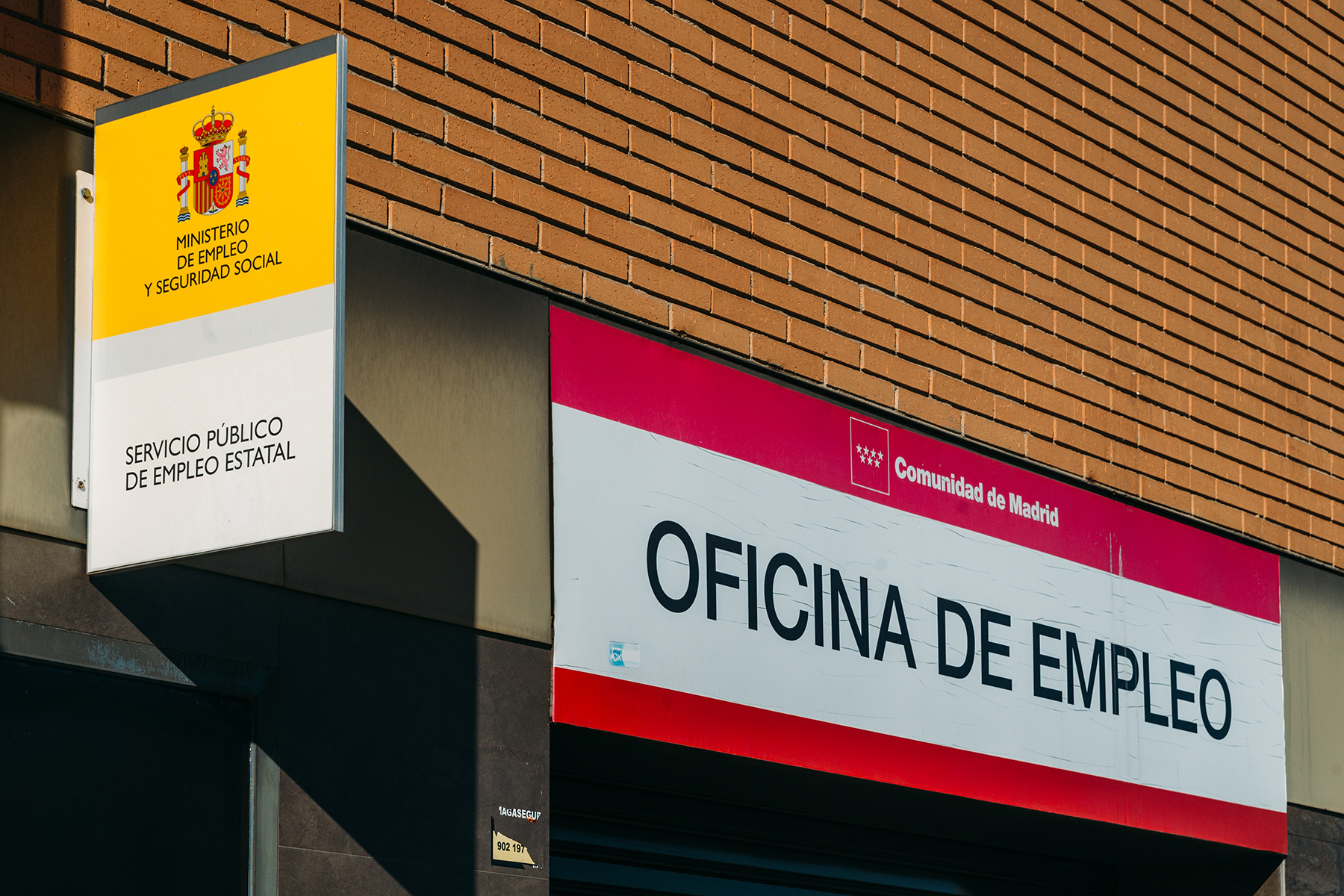When it comes to navigating the business culture in Spain, there are some key differences that are important to know as an expat. Whether you want to relocate to Spain to work or even start your own company, understanding these unique aspects is key to helping you integrate into your new home country.
Navigate the different management styles, structures, and business etiquette that you will likely encounter in Spain with the following sections:
- The business landscape in Spain
- Business culture in Spain
- Business structure and hierarchy in Spain
- Diversity in the workplace in Spain
- Conducting business in Spain
- Business etiquette in Spain
- Social provision through businesses in Spain
- Businesses in the community in Spain
- Business corruption and fraud in Spain
- Useful resources
INSURCEO
Protect your Spanish business with INSURCEO. This specialist business insurer lets you analyze, contract, and manage your insurance digitally, offering policies for freelancers, SMEs, and corporate entities. Choose from a range of products including cyber, office, and public liability insurance. Let INSURCEO keep your business interests safe.
The business landscape in Spain
The major industries that drive the economy of Spain are tourism, manufacturing, agriculture, and energy. Spain is home to the fifth-busiest port in Europe, Valencia, which is also the busiest port in the Mediterranean. It features Europe’s longest high-speed rail network, which is second only to China. World-class infrastructure, human capital, and the high quality of life attract many foreign investors to Spain. Furthermore, a recent report found that 73% of foreign companies plan to increase or maintain their investments in the country and 83% intend to increase or maintain their workforce in 2021-2022.

While Spain’s economy took a downturn during the COVID-19 pandemic, the OECD is predicting a brighter outlook in the near future. Economists forecast a 5.9% growth in the country’s GDP in 2021 and 6.3% in 2022, supported by national recovery measures and a boost in tourism.
Despite this positive outlook, Spain’s employment rate (61.1%) remains lower than the OECD country average (66.6%). This was already on the rise before the pandemic and spiked when the country’s tourism and hospitality sectors ground to a halt. Inequality is also more prevalent in Spain than in other OECD countries. The mean annual earnings in Spain for a full-time worker are around €29,994 (2018), which is lower than many other EU countries. That said, the cost of living in Spain is also lower.
Business culture in Spain
Generally speaking, life in Spain is both energetic and unhurried, and you can expect this same pace in Spain’s business culture. The family is the central unit in Spain and you will find that Spanish people value relationships and integrity in the business world, too. That said, you shouldn’t expect to encounter the same cultural values and etiquette across the whole of Spain. After all, it is a diverse country that has been influenced by the many outsiders who have occupied it throughout its history.

Spain consists of 17 autonomous regions, or autonomous communities (comunidades autónomas). These include Andalusia, Catalonia, Galicia, the Basque Country (Euskal Herria), and the Canary and Balearic Islands; as well as two autonomous cities (Ceuta and Melilla) and small islands off the coast of Morocco, which are collectively known as Places of Sovereignty.
Spanish regions have their own cultures and some even have their own official languages, such as Catalan, Galician, Basque, and Valencian. Notably, Spaniards identify strongly with their home region and even with their specific province of origin.
Timekeeping and working hours
You will quickly discover that in Spain, people’s concept of time and punctuality is not the same as it is in other western nations. For instance, meetings will often start and finish late and deadlines are frequently stretched. You might also find that your working day doesn’t properly get going until after 10:00. Consequently, working late until around 20:00 is also not uncommon.
That said, only 4% of employees work very long hours, which is less than the OECD average of 11%. If you’re a foreign worker in Spain, then it’s better to show up on time when you start with a company; rather than assuming that you can roll in whenever you feel like it without anyone noticing.

While the popular stereotype about Spanish people indulging in siestas isn’t really a feature of modern business culture in Spain, lunch breaks do often last a good two hours or more and involve a trip to a nearby restaurant. Furthermore, many businesses end the working day early on Fridays.
Work-life balance and holidays
Fortunately for expats moving to Spain, the country ranks above average for work-life balance. This is because Spanish people value the separation of their personal and private lives and the country has passed labor laws to safeguard this for employees. Furthermore, since many employees began working remotely during the COVID-19 pandemic, Spain has tried to ensure the right of workers to digitally disconnect when they’re not on the clock.
Spanish law also requires companies to grant workers at least 30 days of paid leave and 12 paid public holidays each year. However, unlike in some other countries, workers in Spain cannot exchange holidays for extra pay. Therefore, it’s unusual for Spanish employees to not use up their full holiday entitlement or to ask for leave days to be carried over into the following year. This is something to bear in mind when you are planning your vacations while living and working in the country.
Business structure and hierarchy in Spain
Many family-owned businesses, as well as most government undertakings, are run in a traditional Spanish way. In short, they uphold strictly separated divisions and a strong hierarchical system. Generally speaking, individualism is predominant in management, and teamwork is not so much appreciated. This strong hierarchical and bureaucratic organizational culture is changing, however, due to a growing number of young managers who have been educated abroad, and changes in Spanish society itself.

Despite there being a strong hierarchical system, business communication in Spain usually takes place on an equal level. Therefore, in order to fit in with the business culture in Spain, it is advisable to stick to dealing with your counterpart during any negotiations. And if any issues do arise, it is better to see if your superior can speak to their superior rather than try to approach those above your rank yourself.
Diversity in the workplace in Spain
Spain is a leading country in the world for expats to live and work. In fact, according to national statistics (website in Spanish), foreign workers account for around 15% of the country’s total labor force. Spain’s labor laws are also among the most robust in the EU and the country offers many protections for workers. These laws prohibit discrimination based on sex, marital status, race, color, nationality, ethnic or national origin, disability religion or belief, and age. They also prohibit direct discrimination, indirect discrimination, harassment, and victimization.
Spain also ranks in 8th position among 49 European countries when it comes to LGBT+ rights. Moreover, several autonomous regions, including the four most populous, outlaw discrimination explicitly based on gender identity and sex characteristics/intersex status.
Laws regarding the employment of handicapped people and the responsibility of employers for their social integration already exist in the country, too. Furthermore, companies with more than 50 employees must reserve at least 2% of their staff positions for people with disabilities.
Women in business in Spain
In 2020, Spain ranked eighth in the EU for gender equality. Since 2010, the number of women in management and board positions in the country has also increased. That said, women in Spain still earn 17% less than men. As of 2021, however, companies with 50 or more workers must create and implement an equality plan.

The plan must include a salary audit that is made available to the public. If one gender earns at least 25% higher than the other in companies with 50 or more employees, the employer must also justify that those salary differences are not based on discrimination.
Notably, while foreign women are generally accepted as businesswomen in Spain, northern European businesswomen are often unpleasantly surprised by the attention that some Spanish men pay them in the office. Essentially, Spanish work culture is slightly different than it is in countries such as the United States or Germany and it is more common to hear men complimenting or commenting on the appearance of female coworkers. Therefore, this may take some getting used to as a female expat.
Conducting business in Spain
Business strategy, planning, and decision-making in Spain
In Spanish organizations, strategic planning is generally less important than in many other countries where it is paramount. Furthermore, it isn’t unusual for this to be the sole responsibility of the managing director or the owner of the company who will often base decisions more on intuition than research.

Despite the gradual changes in Spanish society and the business culture in Spain, senior managers almost always make important business decisions. In most cases, the senior executive will make the decision and then hold a meeting to inform the employees. With this in mind, it is better to hold off trying to tackle a tricky issue yourself, because while company management might value your initiative, they could also view it as overstepping your mark.
Business meetings in Spain
Business meetings are another area in which business culture in Spain differs from many western nations. These are far less formal affairs, and are generally a way for senior management to give instructions and communicate decisions that have already been made rather than to reach a consensus.
Furthermore, it isn’t uncommon to discuss matters that are rather personal and things can get quite loud and noisy. In fact, Spaniards don’t consider it impolite to interrupt someone or even yell at someone in a meeting; especially if they have yelled at you first! However, you should still be careful not to say anything that might offend a coworker’s personal dignity or honor.
When making business appointments in Spain, you should aim to make them as much in advance as possible due to busy schedules. It’s also best to avoid scheduling anything between 14:00 and 17:00 as these are the hours when workers normally take lunch breaks.
Business negotiations in Spain
As for business negotiations, the process can be lengthy due to the relational business culture in Spain. Indeed, Spanish people expect to build up a personal relationship and trust with counterparts before beginning negotiations. And they typically get to know business contacts through lunch and social meetings.

Senior management will usually make the final decision on proposals. After a verbal agreement has been made with a company in Spain, you can then expect that company to put the details into a formal contract. That said, regional variations do exist throughout the country. For instance, Catalans tend to prefer a professional negotiation style, in which bargains are not the main aim. In the South, however, they appreciate a more traditional, formal style of negotiation with bargaining.
Business networking in Spain
As mentioned, personal relationships are important in business culture in Spain. Consequently, you will probably want to consider business networking; whether you are looking for a job or want to strengthen your contacts as an expat in the country.
Fortunately, expats should have no trouble finding business organizations in cities such as Madrid and Barcelona. Here are some business networking groups in Spain that might be useful for expats:
- Spanish Chamber of Commerce (Camara de Comercio) – Spain’s largest business network with local chambers across the country. The Chamber provides support to businesses, runs networking events, and works with the Government to shape business policy.
- Business Network International (BNI) – the Spanish branch of the international business network. The website is in Spanish.
- Club de Exportadores e Inversores – this Spanish Exporters and Investors Club is a business network for international trading companies.
- Professional Women’s Network in Madrid, Barcelona, and Bilbao – a global organization with three chapters in Spain. It focuses on gender equality and professional development with in-person and online networking and education.
Business socializing in Spain
It’s no secret that the Spanish love their food. As a result, lunch and dinner are an important part of the business culture in Spain. That said, Spaniards rarely invite (business) friends to their homes. Instead, they prefer to meet in a restaurant or a café to get to know a business contact better.

Long lunch breaks and dinners are common across the country. And even in a business context, people generally won’t start discussing business before the coffee has been served. Enjoying good food and good company comes first, and the conversation is usually kept light. In fact, don’t be surprised if Spaniards put off discussing business matters until after the meal is over.
Business etiquette in Spain
Communication
Greetings in Spain are an extensive ritual. You can expect to shake hands with everybody present, and only people who know each other kiss on both cheeks. You may notice that Spaniards are initially quite formal in business settings. Therefore, you should address people by their surname, prefixed with senor, senora, or senorita. You should also wait for your host to initiate the use of first names. If your Spanish counterparts have two first names, though, you should use both when addressing them whether they are male or female (e.g., Jose Luis or Maria Teresa). If you speak Spanish, then use the formal form usted until the person invites you to use the familiar form of address tu.

You might also notice that Spaniards stand very close to each other, touch each other frequently on the arm, back, or shoulder, and maintain good eye contact. It is also useful to know that if someone interrupts you while you are speaking, the person is probably showing that they are interested in what you are saying, rather than being rude. And when Spanish people get carried away in a conversation, they will generally speak loudly and gesticulate heavily. This merely means that they are interested and not that they are angry.
Spaniards also hold formal education in high regard, and they may openly inquire about your education. At the same time, don’t boast about your education as Spaniards generally value modesty when it comes to accomplishments.
Dress code
The way you present yourself is of critical importance when dealing with Spanish business people. They usually spend a fair amount of time and money on their outfit and appearance. Business dress is classic, professional, and conventional. Suits usually come in dark colors, but you can also wear lighter colors. Women wear suits too, either with a skirt or trousers, and accessories and makeup tend to be subtle.
Gifts
Gift-giving is not typical in business culture in Spain. However, people sometimes offer gifts at the end of a successful negotiation or to say thank you. That said, you shouldn’t give an expensive gift or the recipient might view it as a bribe. You generally can’t go wrong with giving food, drinks, or souvenirs from your home country. Furthermore, as Spanish people tend to be brand and quality conscious, it is advisable to offer only high-quality items, preferably of a reputable brand. They usually open gifts when they receive them too.
Business cards
In Spain, you will typically exchange business cards at the beginning of a meeting. Your card should have your first name and surname, job title, but no academic titles.
Social provision through businesses in Spain
As a worker in Spain, you will pay into the compulsory state social security system. This will cover you for the costs related to illness, injuries and accidents at work, as well as unemployment and maternity and paternity leave. The state social security system includes access to state healthcare coverage. General contribution rates as of January 2021 are 6.35% for employees, depending on the type of contract, and 29.90% for employers. Additionally, there is a variable rate for occupational accidents (e.g., 1.5% for office work).

Self-employed workers (or autónomo) pay into a specific scheme that offers the same benefits, except for unemployment and coverage for work-related illness and accidents. Therefore, if you are self-employed in Spain, you must arrange this yourself with private insurers.
Self-employed workers pay their own social security contributions in full, but at a lower total percentage. You can read more about this in our guide to becoming an autónomo in Spain. You are also eligible for the Spanish pension system if you are at least 65 years old and have paid into the state social security scheme for a minimum of 15 years.
Businesses in the community in Spain
As in many western EU countries, Spain’s corporations are facing growing public pressure to give back to the community. Forética is the leading Spanish organization in sustainability and corporate social responsibility. It currently comprises more than 200 partners and is itself a national partner of CSR Europe. In 2020, the organization reported that 21% of the companies on Spain’s IBEX 35 (stock market index) have a specific commission to oversee sustainability.
Business corruption and fraud in Spain
Spain’s criminal code makes it illegal for people to offer and accept bribes. Corporate entities are criminally liable for corruption offenses committed by their representatives. While petty bribery is not widespread in business dealings in Spain, prosecutors have initiated many corruption cases in recent years, revealing corruption risks and mismanagement.
Consequently, the country has ramped up efforts to limit corruption and increase criminal liability for corporations. Nevertheless, the Council of Europe’s anti-corruption group (GRECO) has repeatedly criticized Spain for its lack of integrity measures in government institutions.
Useful resources
- Spanish Chamber of Commerce (Camara de Comercio) – Spain’s largest business network with local chambers across the country
- Global business etiquette – find advice for doing business around the world
- Common networking mistakes – read tips on avoiding faux pas and improving the quality of your networking opportunities






